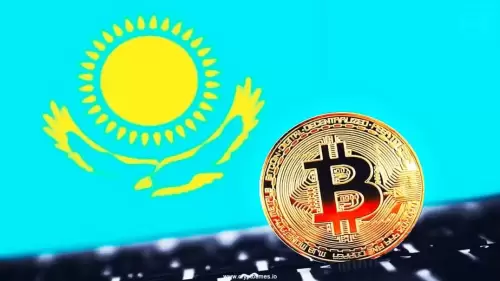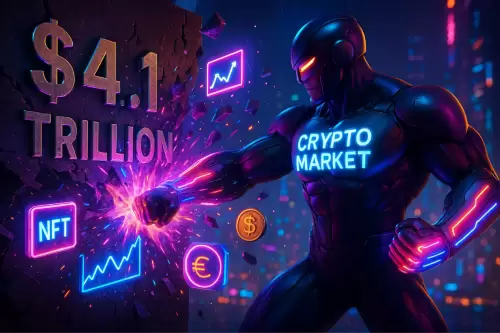 |
|
 |
|
 |
|
 |
|
 |
|
 |
|
 |
|
 |
|
 |
|
 |
|
 |
|
 |
|
 |
|
 |
|
 |
|
該媒體發布闡明了根據《金融服務與市場法》第9部分的規定範圍

On 30 June 2025, Part 9 of the Financial Services and Markets Act 2022 ("FSMA") and other miscellaneous provisions will come into effect. A licence under Part 9 of the FSMA may be required in the following circumstances:
2025年6月30日,《 20022年金融服務與市場法》第9部分(“ FSMA”)和其他其他規定將生效。在以下情況下,可能需要根據FSMA的第9部分獲得許可證:
* if you are an "Affected Person" (generally, a person performing financial services in respect of an asset class covered by Part 9 of the FSMA); and
*如果您是“受影響的人”(通常是FSMA第9部分所涵蓋的資產類別的財務服務的人);和
* if your activity constitutes a "regulated activity" (generally, providing a service in respect of a "digital token").
*如果您的活動構成“受監管的活動”(通常,提供有關“數字令牌”的服務)。
On 6 June 2025, the Monetary Authority of Singapore ("MAS") published a media release clarifying the scope of regulation under Part 9 of the FSMA. We set out some clarifications on the scope and applicability of Part 9 of the FSMA, based on common queries that we have encountered.
2025年6月6日,新加坡貨幣管理局(“ MAS”)發布了媒體發布,闡明了FSMA第9部分規定的監管範圍。我們根據遇到的常見查詢,對FSMA第9部分的範圍和適用性進行了一些澄清。
1. What types of activity are covered by Part 9 of the FSMA?
1。 FSMA第9部分涵蓋了哪些類型的活動?
1。 FSMA第9部分涵蓋了哪些類型的活動?
Part 9 of the FSMA covers "digital tokens". This refers to both (a) DPTs (e.g. cryptocurrencies such as Bitcoin, Ether, and Litecoin, as well as single-currency stablecoins such as USDC and USDT); and (b) tokens of capital market products (e.g. tokenised equities, tokenised debentures, and tokenised units in fund). Part 9 of the FSMA does not cover "conventional" capital markets products (i.e. capital markets products that are not in "token" form). If one is handling assets that do not fall within the definition of "digital token", then it is likely that Part 9 of the FSMA will not apply. Having said that, if the assets being handled are financial instruments, other Acts (e.g. the Main Acts) may still apply to your activities.
FSMA的第9部分涵蓋了“數字令牌”。這是指(a)dpts(例如比特幣,以太和萊特幣等加密貨幣,以及單一貨幣穩定的穩定劑,例如USDC和USDT); (b)資本市場產品的令牌(例如,代幣的股票,令牌債券和基金中的令牌單位)。 FSMA的第9部分不涵蓋“常規”資本市場產品(即不採用“令牌”形式的資本市場產品)。如果一個人正在處理不屬於“數字令牌”定義的資產,那麼FSMA的第9部分很可能不適用。話雖如此,如果處理的資產是金融工具,其他行為(例如,主要行為)仍可能適用於您的活動。
By way of illustration, if you are providing securities brokerage services in relation to conventional, non-tokenised equities, such an asset class is not a "digital token" unser the FSMA (since, in the current context, this only applies to a digital representation of an equity that can be transferred, stored, or traded electronically). However, even though Part 9 of the FSMA will not apply to the activity, you may still be conducting a regulated activity under the SFA, triggering licensing requirements unless exempt (from licensing).
通過說明,如果您提供有關傳統的,非言語公平的證券經紀服務,那麼這樣的資產類別不是“數字令牌”,即FSMA(因為在當前情況下,這僅適用於可以傳輸,存儲,以電子方式傳輸的股權的數字表示,或者是電子)。但是,即使FSMA的第9部分不適用於該活動,您仍可能仍在SFA下進行監管活動,除非豁免(獲得許可),否則觸發許可要求。
2. What should Affected Persons do next?
2。接下來受影響的人應該做什麼?
2。接下來受影響的人應該做什麼?
If you are an Affected Person and you believe your activities may constitute regulated activities (e.g. the services that you provide to customers involve assets that are DPTs or capital markets products (whether in token form or otherwise)):
如果您是受影響的人,並且您認為您的活動可能構成受監管的活動(例如,您為客戶提供的服務涉及DPTS或Capital Markets產品的資產(無論是以代幣形式還是其他形式)):
* You should, in the first instance, consider whether you require a licence under the Main Acts (including whether you meet the standards for licensing under the Main Acts and whether your business has a strong "nexus" to Singapore such as servicing customers in Singapore), or whether you can rely on a licensing exemption under the Main Acts.
*首先,您應該考慮是否需要在主要行為下獲得許可證(包括您是否符合主要行為下的許可標準,以及您的業務是否對新加坡的新加坡有很強的“聯繫”,例如在新加坡為客戶提供服務),還是您是否可以根據主要行為依靠許可豁免權。
* Alternatively, you may wish to consider whether it is possible to restructure your activities, such that they do not amount to regulated activities in Singapore.
*另外,您可能希望考慮是否可以重組您的活動,以便它們不像新加坡受監管的活動。
* This should be your primary focus, as Part 9 of the FSMA is not meant to be an alternative licensing regime to the licensing regimes under the Main Acts. There will only be extremely limited circumstances under which MAS will grant an FSMA licence, and MAS has said that it will generally not be issuing licences under the FSMA.
*這應該是您的主要重點,因為FSMA的第9部分並不意味著成為主要行為下許可製度的替代許可製度。在某些情況下,MAS將授予FSMA許可證,而MAS表示,通常不會根據FSMA頒發許可證。
3. What if I am already licensed or exempt (from licensing) under the Main Acts?
3.如果我已經在主要行為下獲得許可或豁免(獲得許可)怎麼辦?
3.如果我已經在主要行為下獲得許可或豁免(獲得許可)怎麼辦?
If you are an Affected Person and you are already licensed or exempt (from licensing) under the Main Acts:
如果您是受影響的人,並且您已經在主要行為中獲得許可或豁免(獲得許可):
* You will likely be exempt from licensing under the FSMA (for the same activity that you are licensed or exempt from under the Main Acts).
*您可能會免於FSMA下的許可(對於您在主要行為下獲得許可或免除同一活動)。
* You will generally not be restricted from offering your regulated services to customers outside of Singapore, but you should check whether your activities (in respect of these customers outside of Singapore) trigger issues of foreign law.
*通常,您不會限制向新加坡以外的客戶提供受監管的服務,但是您應該檢查您的活動(對於新加坡以外的這些客戶)是否觸發外國法律問題。
4. What if I am an employee of a foreign company and I am resident in Singapore?
4。如果我是外國公司的僱員,並且我居住在新加坡怎麼辦?
4。如果我是外國公司的僱員,並且我居住在新加坡怎麼辦?
If you are an employee of a foreign company (i.e. the company that employs you is not a Singapore-incorporated company) and you are resident in Singapore, the work you do for that foreign company should not in itself trigger FSMA licensing requirements. However, you should consider whether your activities in Singapore are regulated and trigger regulatory issues under the Main Acts, in respect of the foreign company. For example, some provisions in the Main Acts provide for extraterritorial effect (e.g. section 339 of the SFA provides for the extraterritorial effect of provisions in the SFA, including licensing requirements, if acts are done "partly in" Singapore). A company (even a foreign company) may also be viewed as operating a business "in Singapore" if it has employees located predominantly in Singapore.
如果您是外國公司的僱員(即僱用您的公司不是新加坡的公司),並且您是新加坡的居民,那麼您為外國公司所做的工作本身不應觸發FSMA許可要求。但是,您應該考慮您在新加坡的活動是否受到監管,並在主要行為下觸發監管問題,就外國公司而言。例如,主要法案中的某些規定規定了域外效應(例如,SFA第339條規定了SFA中規定的域外效應,包括許可要求,如果法案在新加坡“部分”中進行了“部分”)。如果一家公司(甚至是外國公司)的業務主要位於新加坡,則也可以被視為“在新加坡”經營業務。
免責聲明:info@kdj.com
所提供的資訊並非交易建議。 kDJ.com對任何基於本文提供的資訊進行的投資不承擔任何責任。加密貨幣波動性較大,建議您充分研究後謹慎投資!
如果您認為本網站使用的內容侵犯了您的版權,請立即聯絡我們(info@kdj.com),我們將及時刪除。
-

- 哈薩克斯坦的加密飛躍:比特幣ETF和中亞的數字融資未來
- 2025-08-13 11:59:45
- 哈薩克斯坦通過現場比特幣ETF和創新營銷在中亞的加密貨幣場景中大放異彩。看看它的影響。
-

-

-

- 比特幣的瘋狂騎行:集會,回調,接下來是什麼
- 2025-08-13 09:00:19
- 比特幣最近在回調之前飆升至122,000美元。檢查市場量和鏈上數據,揭示了對比特幣集會和潛在未來的見解。
-

- 比特幣,Bitmax和機構需求:加密投資的新時代
- 2025-08-13 08:58:33
- 探索Bitmax的比特幣擴展和更廣泛的機構採用如何重塑加密貨幣景觀,這是由戰略投資和不斷發展的法規驅動的。
-

-

- 乘坐加密浪潮:NFTS,DEFI和市場高4.2噸
- 2025-08-13 08:30:46
- 探索加密貨幣市場的最新趨勢,包括NFTS的激增,Defi Innovations和主要見解,推動了該市場的售價4.2噸。
-

- 冷錢包:現金返還,加密貨幣和像老闆一樣的汽油費
- 2025-08-13 08:20:49
- 冷錢包改變了遊戲。獲得汽油,掉期等的現金返還。這是我們所知道的高加密費的終結嗎?讓我們潛入!
-































































